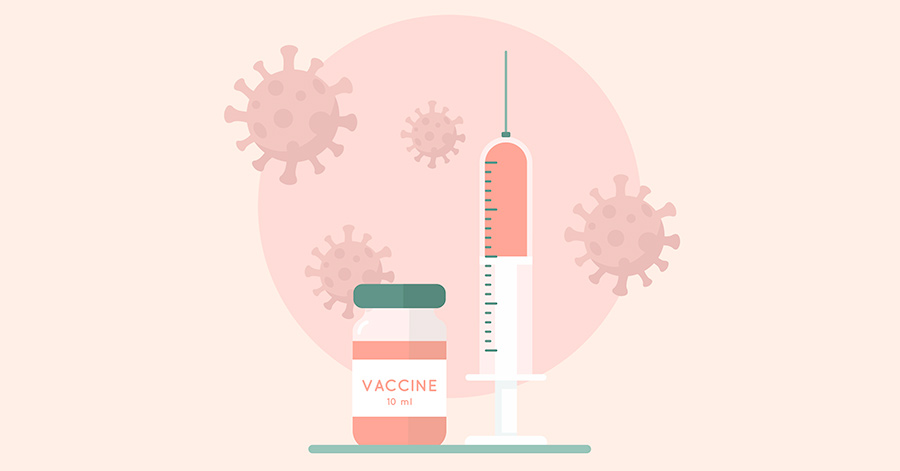With the FDA’s recent emergency use authorization of the Pfizer-BioNTech COVID-19 vaccine, the fertility community has been flooded with questions and concerns regarding the safety of the vaccination for pregnant individuals or those trying to conceive.
The ASRM Coronavirus/COVID-19 Task Force recently released a statement supporting public health measures to combat the virus. Along with the American College of OB/GYNs, the Society for Maternal Fetal Medicine, the Society for Gynecological Oncology, and the AAGL, ASRM supports strategies to protect the health and wellbeing of patients, healthcare professionals, and healthcare professional society members and staff. Although ongoing public health measures, such as physical distancing, masking, hand hygiene, and the use of appropriate personal protective equipment, help to minimize the spread of existing COVID-19 infection and protect healthcare providers, widespread vaccination is the key to the prevention of new infections.
Patients who are pregnant and contract COVID are five times more likely to end up in the intensive care unit (ICU) or on a ventilator than those who are not pregnant. Despite this and the categorization of pregnancy as a high-risk condition for severe COVID-19 illness, hospitalization, and mortality, pregnant individuals have been excluded from participating in vaccine trials for the coronavirus. This means that the vaccine has not yet been clinically tested on those who are pregnant, which has caused concern for many people who are pregnant or trying to conceive.
In its latest statement, the ASRM COVID-19 Task Force clearly endorses the vaccine, noting that it “does not recommend withholding the vaccine from patients who are planning to conceive, who are currently pregnant, or who are breastfeeding (1,2,3) and encourages patients undergoing fertility treatment to receive vaccination based on current eligibility criteria.” There are also several key points to note from the statement:
- “A shared decision-making model between patients and providers should be used when considering vaccination and should take into consideration the ethical principles of autonomy, beneficence, and non-maleficence.”
- “Because COVID-19 mRNA vaccines are not composed of live virus, they are not thought to cause an increased risk of infertility, first or second trimester loss, stillbirth, or congenital anomalies.”
- “While COVID-19 vaccination can cause fever in some patients (up to 16% of those vaccinated and mostly after the second dose), this risk should not be a concern when deciding whether to vaccinate a pregnant individual or a patient desiring pregnancy.
- “Physicians should promote vaccination to patients, their communities, and to the public.”
For those who are more vulnerable, including pregnant individuals, it is especially important to consult with a trusted physician when considering whether or not to take the vaccine. The safety of healthcare professionals, vulnerable populations, and the public at large depends on widespread vaccinations. There is no reason to delay vaccination, nor is there a reason to delay pregnancy attempts or fertility treatment. We stand behind the ASRM’s statement, and we encourage patients to discuss the vaccination with their healthcare professionals.


